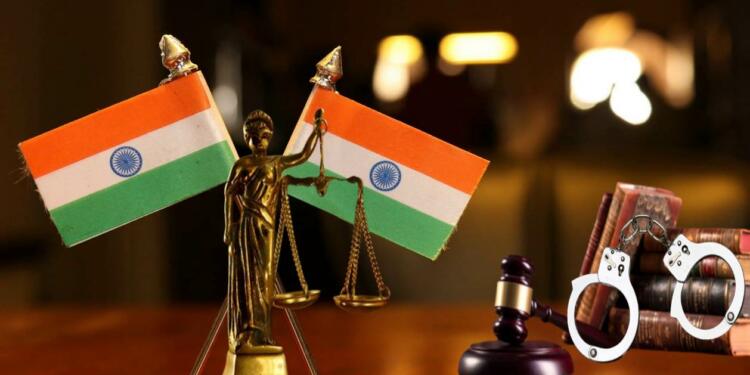The Criminal Procedure (Identification) Bill 2020 is set to be introduced in Lok Sabha. The objective of the bill is to bring the criminal investigation of the country, as per modern and world-class standards. The Criminal Procedure (Identification) Bill will allow an investigation officer to collect, store and analyze physical & biological samples of arrested or convicted prisoners.
‘Unconstitutional’: Opposition parties raise voice against Criminal Procedure (Identification) Billhttps://t.co/p2l9g4yh6Y
— The Indian Express (@IndianExpress) March 28, 2022
#TodayinParliament The Criminal Procedure (Identification) Bill, 2022 is listed for introduction in #LokSabha. #RajyaSabha is expected to take up consideration of the Appropriation and Finance Bills. pic.twitter.com/4zKqR0OEUE
— PRS Legislative (@PRSLegislative) March 28, 2022
Opposing the Criminal Procedure (Identification) Bill 2022, which is a derogation of Article 20 sub article 3 and Article 21 of the Indian Constitution, highlighted that the bill is beyond the legislative competence of the House & against the fundamental rights of our citizens. pic.twitter.com/jCc6DCAm2f
— Manish Tewari (@ManishTewari) March 28, 2022
Salient features of The Criminal Procedure (Identification) Bill 2020
- Sample collection of iris, retina, signature, and handwriting
- National Crime Record Bureau (NCRB) to collect, store and preserve the record for at least 75 years
- Resistance to allowing the taking of measurement under the Criminal Procedure (Identification) Bill shall be an offense under section 186 of IPC.
Read More: Justice DY Chandrachud gets flak for a statement about ‘obvious upper-caste privilege’
Need for the Criminal Procedure (Identification) Bill
Earlier, the collection of measurements of convicts and others was governed by The Identification of Prisoners Act, 1920. The colonial act was lacking on many fronts due to improvements in technology & changing nature of crime. Further, the differentiation in taking the measurement of convicted and non-convicted persons was also hampering the investigation process. This bill will help in bringing overhaul reform in the criminal investigation & the justice delivery system.
Read More: Christian woman approaches VHP to save her daughter from a Muslim abuser, gets justice
Surgical Strike on Laws Passed in Colonial Era
After 75 years of Independence, we are still adjudicating ourselves from the laws passed by Britishers. In 2014, PM Modi had said, “For every law passed, his government would repeal ten obsolete ones.” The constant reform in this area also reflects his promise of Maximum Governance & Minimum Government. The multiplicity of laws helps the criminal to escape by finding some loopholes. The scrapping of ‘archaic’ laws brings change with modernity in the justice delivery system. Most of the criminal laws were designed in a manner to derail the freedom struggle. To make it humane and acclimatized according to modern objectives of equality & justice, scrapping old laws is the need of the hour.
Read More: Justice VR Krishna Iyer – One of the few judges who dared to take on the left-liberal establishment
Reforms in Criminal Justice Delivery
Data released by NCRB states that 76.1% of all persons held in India’s prisons are undertrial. About 44 million cases are pending in India, and most of the cases are pending in the lower judiciary. The obsolete system of investigation and infrastructural lacking in both judiciary and police are the paramount reason behind the pending cases.
Read More: Are crime-related shows making Indian criminals more creative?
Moreover, in many states, police have been assigned with both the investigation as well as the maintenance of law & order charges which ultimately affect the quality of work. The lack of training and archaic laws have affected both order and investigation. Further, there is an urgent need to increase the infrastructure as well as the number of judges in the judiciary.
The reforms brought by the Criminal Procedure (Identification) Bill in the criminal justice system will help in expediting the investigation process. The record of crimes and criminals with NCRB will help in the early disposal of cases. Because as we know, ‘Justice delayed is justice denied.’
Read More: Himanta goes the Yogi way with massive encounter operations against criminal elements




























